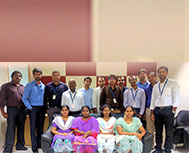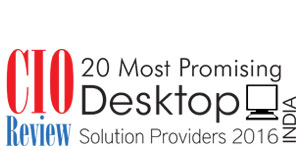 Today commerce and governance both are inextricably linked with the software engines that run their processes. In this context, the increasing monopolization of software by a clutch of mega-corporations has increasingly raised concerns. The major areas of monopolies that affect governance in particular are Primary software and primary applications.These monopolies have significant economic impact on consumer nations.Monopolies are equipped to stifle any new competition. Monopoly leads to lesser growth, and in the medium and long term. Further, revenue drains from consumer nations due to Software Licensing Costs, except for a minor plough back into the consumer country as taxes/reseller profits, with no value to the local economy.
Today commerce and governance both are inextricably linked with the software engines that run their processes. In this context, the increasing monopolization of software by a clutch of mega-corporations has increasingly raised concerns. The major areas of monopolies that affect governance in particular are Primary software and primary applications.These monopolies have significant economic impact on consumer nations.Monopolies are equipped to stifle any new competition. Monopoly leads to lesser growth, and in the medium and long term. Further, revenue drains from consumer nations due to Software Licensing Costs, except for a minor plough back into the consumer country as taxes/reseller profits, with no value to the local economy.Today, governments are also examining the strategic implications of using “black box” software. Revelations of provision of unauthorized access built into software are disquieting for strategic sectors (eg. Oil, Transport, Banking etc). The means of combating commercial monopolies is not to create a fresh monopoly from another player. For example, no fresh player with a pure commercial background will be able to start from ground up and build a closed proprietary operating system and software suite to take on Microsoft Windows. Free or Open Source Software (FOSS) development and usage is a means of combating such monopoly as it allows system integrator and local players to unlock value in projects and thus fosters competition as well as bolstering local economies.
The Government of India, in Jun 2015, formally issued a policy indicating a progressive shift to FOSS. The common fears regarding FOSS, termed as FUD (Fear, Uncertainty, Doubt) gave rise to statements like "No ownership”, “will die down”, “doesn’t work in critical situations”, “lack of support”, “doesn’t work in large-scale projects” etc.
These are belied by the fact that some of the biggest companies in the world work on FOSS based infrastructure. Further, emerging fields like Cloud Computing and Big Data Analytics all have strong FOSS ecosystems.
In accordance with the GoI’s stated objective, all solutions of C-DAC Chennai are based on FOSS. “We aim to assure the private system integrators against the ‘Fear, Uncertainty and Doubt’ that is commonly quoted against FOSS solutions by providing implementation, training and support in addition to software,” says the Director. This Chennai based team has been working on localized Indian distribution of Debian Linux called Bharat Operating Systems Solutions (BOSS). The team has managed extensive pilot implementations in various state governments. "The strategic sectors and education have been our focus in the current phase,” says the team leader. The development team has nurtured the offering from merely a desktop/server OS to a cohesive suite of desktop, server, patch and security management solutions, as well as integrated LDAP, mail, ID management and PKI solutions.
With approvals from the Ministry of Communication and Information Technology, C-DAC Chennai is presently embarking on the ambitious task of promoting Open Source Solutions in the private sector to increase penetration of FOSS. To improve market penetration, C-DAC Chennai is increasing its tie-ups with hardware OEMs as well, in order to provide better integration for peripherals and other drivers. The next phase of the project will see empanelment of private solution providers, greater collaboration with OEMs and the fruition of the vision of solutions that are truly "Made in India".

C-DAC Chennai is presently embarking on the ambitious task of promoting Open Source Solutions in the private sector to increase penetration of FOSS
In accordance with the GoI’s stated objective, all solutions of C-DAC Chennai are based on FOSS. “We aim to assure the private system integrators against the ‘Fear, Uncertainty and Doubt’ that is commonly quoted against FOSS solutions by providing implementation, training and support in addition to software,” says the Director. This Chennai based team has been working on localized Indian distribution of Debian Linux called Bharat Operating Systems Solutions (BOSS). The team has managed extensive pilot implementations in various state governments. "The strategic sectors and education have been our focus in the current phase,” says the team leader. The development team has nurtured the offering from merely a desktop/server OS to a cohesive suite of desktop, server, patch and security management solutions, as well as integrated LDAP, mail, ID management and PKI solutions.
With approvals from the Ministry of Communication and Information Technology, C-DAC Chennai is presently embarking on the ambitious task of promoting Open Source Solutions in the private sector to increase penetration of FOSS. To improve market penetration, C-DAC Chennai is increasing its tie-ups with hardware OEMs as well, in order to provide better integration for peripherals and other drivers. The next phase of the project will see empanelment of private solution providers, greater collaboration with OEMs and the fruition of the vision of solutions that are truly "Made in India".




